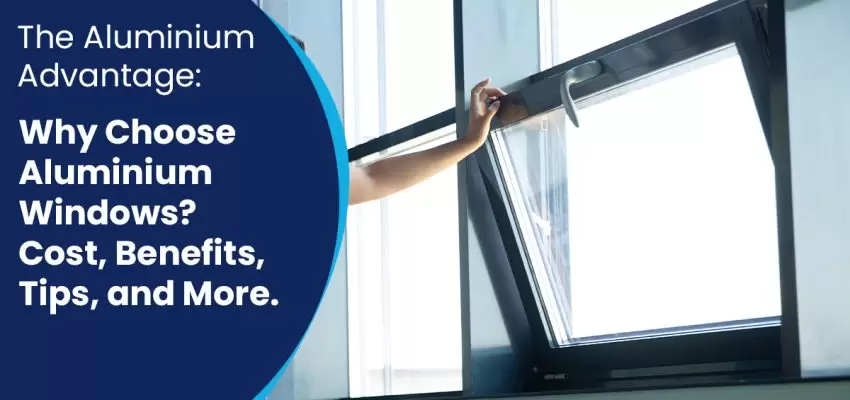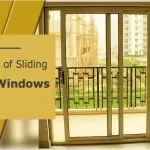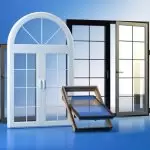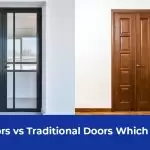In the ever-evolving world of architecture and design, the selection of windows goes beyond mere utility – it’s a reflection of a space’s character and functionality. Amidst the choices of window materials, aluminium has emerged as a standout contender.
Post your Requirement
Aluminium Windows: An Overview
These windows are popular in contemporary architecture due to their lightweight yet sturdy nature. Comprising aluminium frames and glazing, these windows are known for their sleek aesthetics and functional attributes. They are widely used in various applications, from residential homes to commercial establishments.
Cost Considerations of Aluminium Windows
The initial cost of aluminium section windows can vary depending on factors like design, size, and features. While these windows may have a higher upfront cost compared to other materials like wood or uPVC, the long-term benefits can offset this investment. Energy efficiency, low maintenance, and the potential for increased property value contribute to cost savings over the life of the windows.
Benefits of Aluminium Windows
- Durability and Longevity: Aluminium is inherently corrosion-resistant, making it an ideal material for windows, especially in areas with harsh weather conditions.
- Energy Efficiency: These windows are energy efficient. That enhances insulation and reduces energy consumption, contributing to a sustainable and cost-effective living or working space.
- Low Maintenance Requirements: Aluminium is a low-maintenance material, requiring minimal upkeep over the years.
- Design Versatility: They can be customized to match various architectural styles. Additionally, they are available in different finishes and colours, allowing for seamless integration into diverse design visions.
- Weather Resistance: These windows are well-suited to withstand various weather conditions. They are impervious to moisture, which means they won’t swell, warp, or corrode in humid environments.
- Security and Strength: Aluminium is a robust material that provides enhanced security.
- Environment-Friendly: Aluminium is highly recyclable, making these windows an environmentally conscious choice.
- Sound-Insulation: These windows, when properly designed with appropriate glazing options, can offer effective sound insulation.
Comparing Aluminium and Wooden Window Frames
Material Characteristics:
- Aluminium:
- Lightweight yet sturdy due to its metallic composition.
- Resistant to rust, corrosion, and weather-related wear.
- Modern and sleek appearance with slim profiles.
- Wooden Frames:
-
- Offers a classic and timeless aesthetic with natural warmth.
- Provides good thermal insulation due to the properties of wood.
- Vulnerable to moisture, potentially leading to warping, rot, and insect infestations.
Maintenance:
- Aluminium:
-
- Requires minimal maintenance; no need for painting or sealing.
- Suitable for high-moisture areas as it doesn’t absorb water.
- Wooden Frames:
-
- Demands regular maintenance, including painting to protect against moisture and decay.
- susceptible to the effects of weather and pests without proper care.
Energy Efficiency:
- Aluminium:
-
- Excellent thermal efficiency can be achieved through thermal break technology.
- Effective at minimizing heat transfer through the frame.
- Wooden Frames:
-
- Offers inherent natural insulation, contributing to energy saving.
- Provides decent insulation properties without additional technology.
Design and Aesthetics:
- Aluminium:
-
- Versatile design options with a variety of finishes and colours.
- Creates a contemporary and sleek appearance.
- Wooden Frames:
-
- Timeless and organic appeal that suits various architectural styles.
- Adds a sense of warmth and cosiness to the space.
Environmental Considerations:
- Aluminium:
-
- Highly recyclable, making it an eco-friendly choice.
- Sustainability comes from reusing and repurposing aluminium.
- Wooden Frames:
-
- If Sourced sustainably, wood can be environmentally friendly.
- Biodegradable, contributing to a lower carbon footprint if responsibly harvested.
Weather Resilience:
- Aluminium:
-
- Resistant to harsh weather conditions and temperature fluctuations.
- Maintains structural integrity without warping.
- Wooden Frames:
-
- Requires additional weatherproofing to withstand extreme conditions.
- Prone to expansion and contraction due to varying weather.
Aluminium vs. uPVC Windows: A Comparative Overview
Material Composition:
- Aluminium:
-
- Composed of lightweight yet sturdy aluminium frames.
- Suitable for slim profiles, maximizing glass area and views.
- uPVC Windows:
-
- Constructed from unplasticized polyvinyl chloride, a type of plastic.
- Typically have thicker frames due to the material’s properties.
Durability:
- Aluminium:
-
- Highly durable and corrosion-resistant.
- Can withstand harsh weather conditions without warping, rusting, or fading.
- uPVC Windows:
Durable and resistant to moisture, but may degrade over time due to exposure to sunlight and weather.
Energy Efficiency:
- Aluminium:
-
- Equipped with thermal break technology to enhance energy saving.
- Minimizes heat transfer through the frame, improving insulation.
- uPVC Windows:
-
- Generally offers good insulation properties, contributing to energy saving.
- May not have the same level of thermal performance as aluminium with thermal breaks.
Maintenance:
- Aluminium:
-
- Low maintenance; periodic cleaning is usually sufficient.
- Resistant to rot, rust, and fading, eliminating the need for painting or staining.
- uPVC Window:
-
- Low maintenance as well; cleaning with soap and water is typically required.
- May discolour or degrade over time due to exposure to UV rays.
Aesthetics and Design:
- Aluminium:
-
- Offer a sleek and modern appearance.
- Available in different finishes and colours to suit various architectural styles.
- uPVC Windows:
-
- Offer a clean and uniform look.
- Available in limited colours and finishes compared to aluminium.
Environmental Impact:
- Aluminium:
-
- Highly recyclable, contributing to sustainability.
- Can be repurposed and reused after their lifespan.
- uPVC Window:
-
- Recyclable but with some challenges due to the plastic content.
- May have a higher environmental impact compared to aluminium.
Sound Insulation:
- Aluminium:
-
- Can provide effective sound insulation when designed with appropriate glazing options.
- Suitable for creating a quiet indoor environment.
- uPVC Windows:
-
- Generally offers good sound insulation properties.
- Can help reduce external noise intrusion.
Tips for Choosing Aluminium Windows:
- Quality and Supplier: Choosing a reputable supplier ensures that you receive windows that adhere to industry standards and meet your expectations.
- Energy Efficiency Ratings: Look for labels and ratings. These indicate the windows’ ability to insulate against heat transfer, contributing to a comfortable indoor environment and potential energy savings.
- Glazing Options: Properly chosen glazing can enhance insulation, noise reduction, and overall performance.
- Professional Installation: Professional installation is essential to ensure the windows are fitted correctly and perform optimally.
Aluminium Windows for Different Settings:
- Residential: In residential settings, these windows offer a perfect blend of durability, aesthetics, and functionality. Their slim profiles maximize natural light and views, while thermal break technology enhances energy saving, contributing to a comfortable home environment.
- Commercial: These windows are also an excellent choice for commercial spaces. Their durability and design versatility make them suitable for various architectural styles.
- Industrial: Industrial settings benefit from the robustness and low maintenance characteristics of these windows. They can withstand harsh environments and require minimal upkeep, making them a practical choice for industrial applications.
Conclusion:
The choice of windows can significantly improve the aesthetics, functionality, and overall value of a space. An Aluminium window is a compelling option due to its durability, slim profile, and energy saving. While initial costs may be slightly higher, the long-term advantages they offer in terms of cost savings, low maintenance, and design versatility make them a worthwhile investment. By considering quality, glazing options, local regulations, and professional installation, you can harness the Aluminium Advantage and enhance the beauty and functionality of your living or working spaces.























Post A Comment